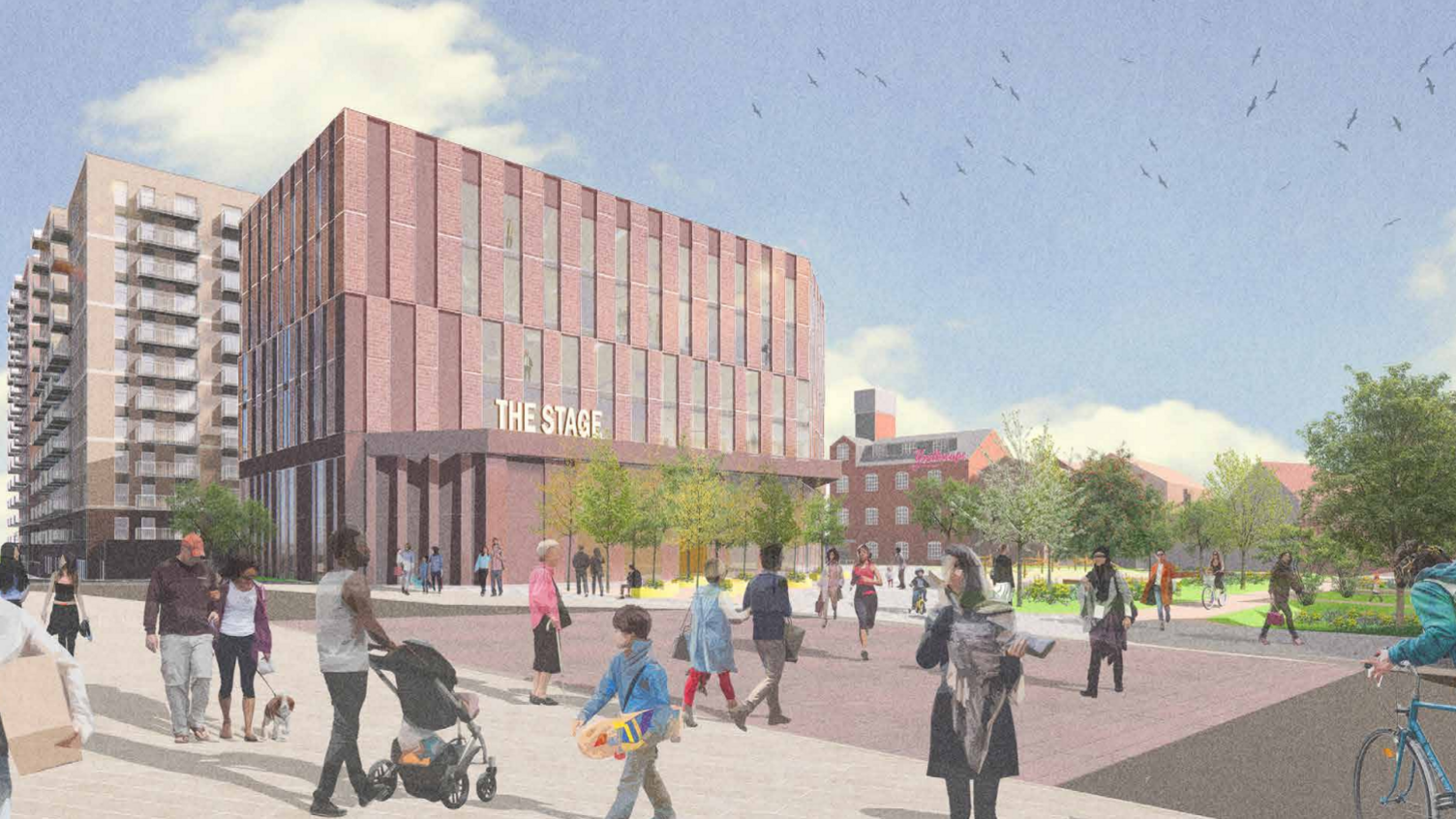The millions spent on homes that are on pause
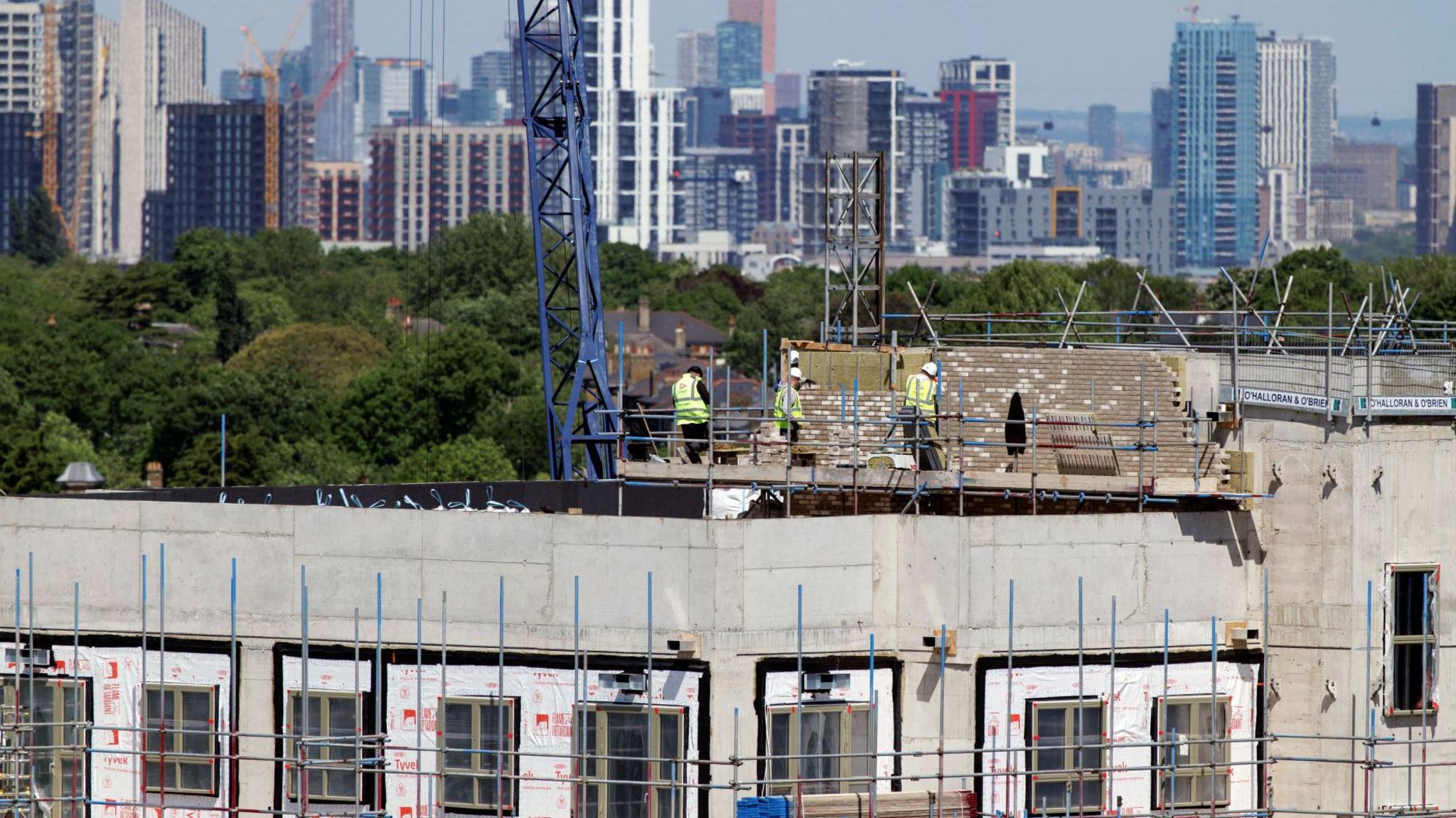
Work on more than 3,800 new homes in London has stalled, the BBC has learnt
- Published
An estimated £120m has been spent by London councils on housing developments in the capital that are now on hold, the BBC has learnt.
This equates to more than 3,800 private and social homes, according to data obtained from 31 out of 33 councils under the Freedom of Information Act.
Work was paused on these projects due to spiralling building costs, increased pressure on council budgets and stricter building regulations brought in following the Grenfell Tower fire, among other reasons, local authorities have said.
The government says it has announced a "package of reforms" to speed up building safety and planning applications.
Some of the developments stalled several years ago, although it is possible that they will be restarted in future.
A plan for new homes on the Waterloo Estate in Romford, east London, is among those developments that appear to have been all but abandoned.
Here, Havering Council spent £19m on demolishing a former estate in 2021 to make way for 1,380 "new, high-quality, modern, energy-efficient homes".
The scheme was put on ice the next year, with no construction having been carried out.
Council leader Ray Morgon put this down to new building safety regulations introduced following the Grenfell Tower fire requiring the development to have a second staircase.
"We're very, very keen to make sure that our housing is the safest it can possibly be for our residents, but of course that increases the costs and that was the reason why we had to pause [the development]," Mr Morgon told BBC Radio 4's Today programme.
Lord Best, former chair of the Affordable Housing Commission, says the Building Safety Regulator (BSR) - which oversees development of higher-risk buildings - must process planning applications "a lot faster".
He cites "delays of up to a year" for developers to have their building safety applications processed and says the BSR needs more resources.
In addition to the new regulations, rising building costs "add up and make it much more difficult to achieve the government's (home-building) target", Lord Best warns.
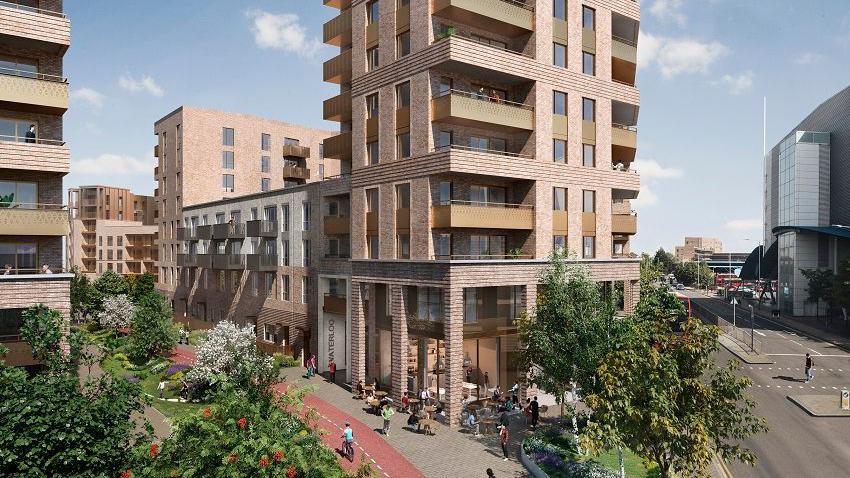
This computer-generated image shows the new homes planned for the Waterloo Estate
Rick de Blaby, the chief executive of build-to-rent developer Get Living, agreed that it was becoming increasingly challenging to build new homes in the capital.
"Getting planning permissions, funding contractors to execute the work, delivering homes in any sort of timescale that's predictable, has probably never been harder in my career," he said.
A government spokesperson said although the BSR played a "crucial role in making buildings safer", it was creating a "system that works for developers and keeps residents safe".
The spokesperson said reforms were planned to speed up decisions so that "developers can get on and build the homes London desperately needs".
The BSR said that protecting residents was its priority.
"Setting up a new regulator has been complex, and huge progress has been made in a short time. The construction industry must meet standards that will keep residents safe in high-rise buildings," a spokesperson said.
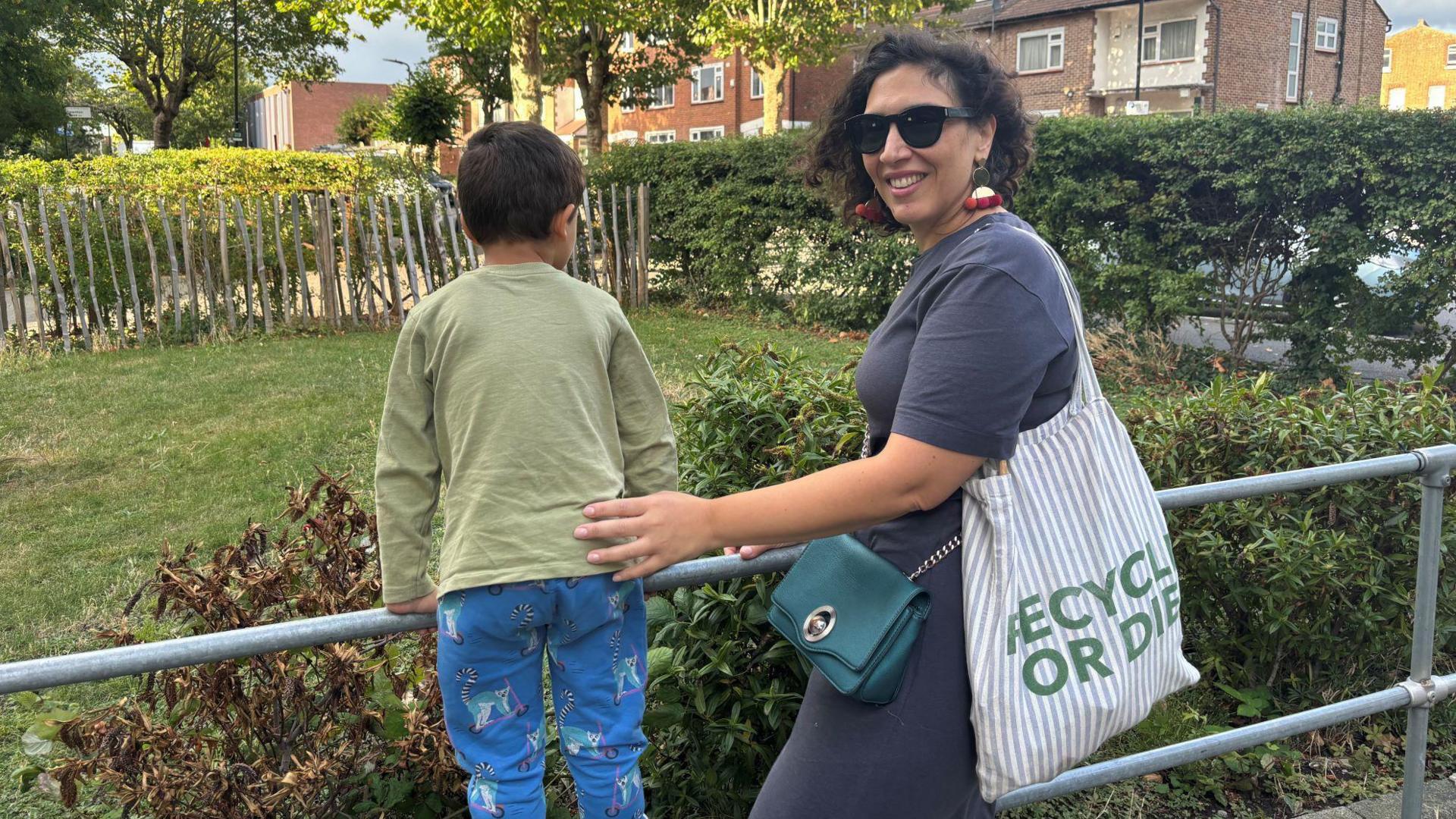
Niki lives in a one-bedroom flat in Hackney and says she is unlikely to be given a council flat for 26 years
Niki, who lives in a one-bedroom flat in Hackney with her husband and two sons, said she wanted to see more affordable housing built in the area more quickly.
Her husband currently sleeps on a sofa while she shares a bed with the children, she told the BBC.
Despite one of her sons being autistic, she has been told she is in for a long wait on Hackney Council's housing list.
"Initially I was placed in medical priority and told to wait for 12 years. Once I acquired assessments for my son's own-room entitlement, I was downgraded, and now we're looking at 26 years for a three bedroom," she said.
"I would like be able to support my child in the way he deserves… I can't meet my family's needs at the moment," she said.
As Hackney Council battles to address the borough's housing needs, a mixed housing development that promised 80 new homes has stalled.
The local authority spent £2.1m on preparing for development of the Lincoln Court Estate before work stopped due to spiralling construction costs.
A council spokesperson said it was a "complex project that has been particularly impacted by the rising cost of construction", but that new homes had been built elsewhere in the borough.
"We will also continue to make the case for additional support to make it easier for councils to build more, and for the root causes of the housing crisis that fails so many families to be addressed," the spokesperson added.
Listen to the best of BBC Radio London on Sounds and follow BBC London on Facebook, external, X, external and Instagram, external. Send your story ideas to hello.bbclondon@bbc.co.uk, external
Related stories
- Published5 July 2021
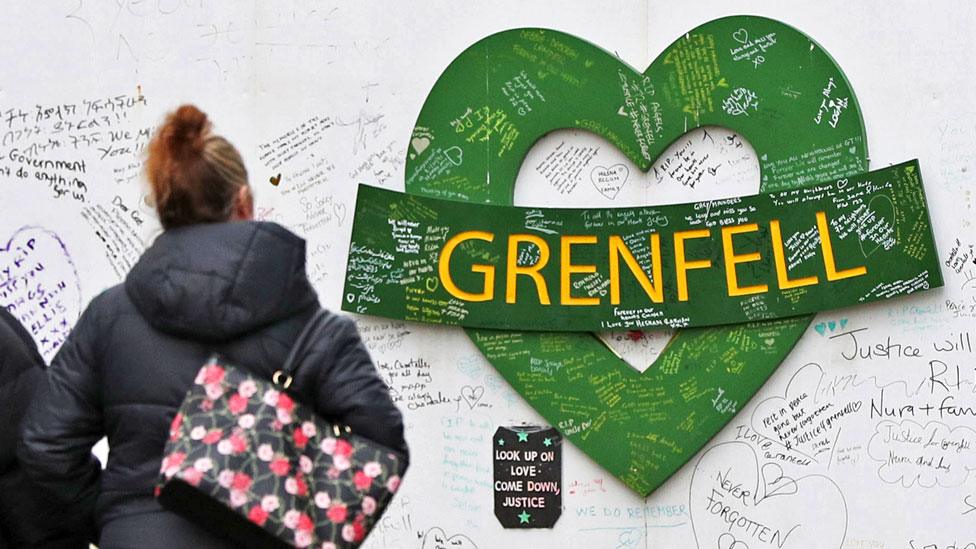
- Published2 June 2022
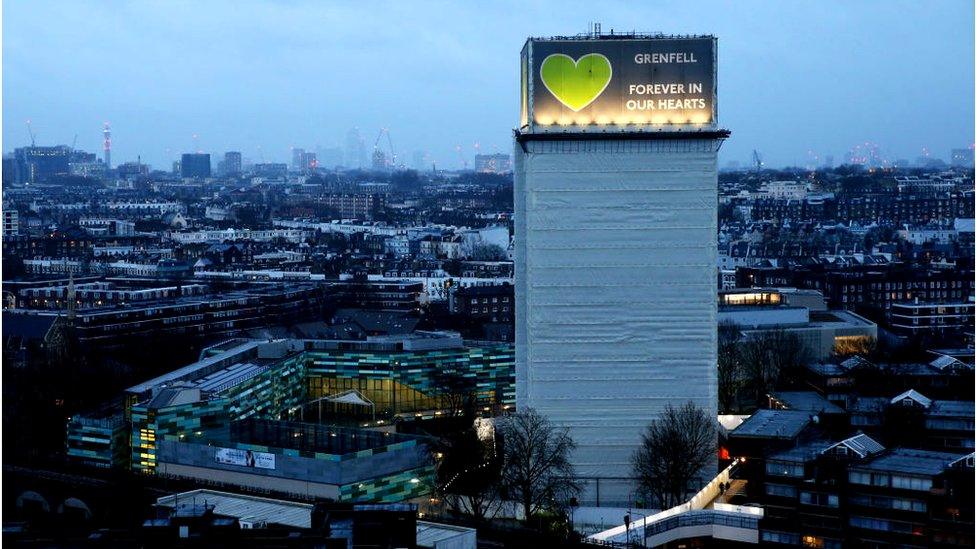
- Published16 June
